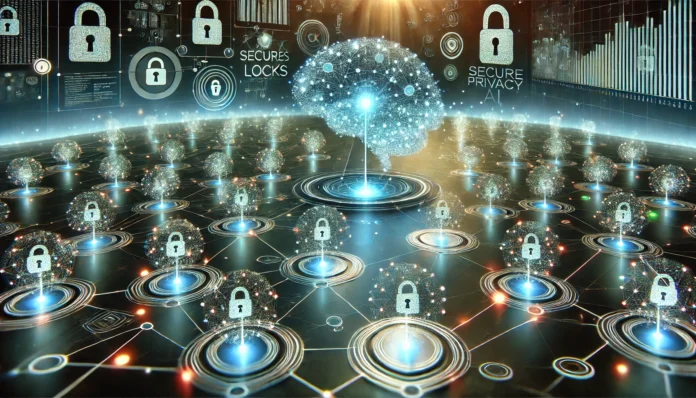Artificial Intelligence (AI) has made significant strides in recent years, yet its progress often comes at the expense of privacy. Centralized AI systems, which aggregate vast amounts of user data in a single location, are vulnerable to breaches, misuse, and privacy concerns. In response, decentralized AI is emerging as a revolutionary approach to machine learning that prioritizes privacy, security, and user control.
What is Decentralized AI?
Decentralized AI involves distributing AI processes across a network of devices or nodes, rather than relying on a central server. This paradigm leverages technologies like blockchain, federated learning, and edge computing to enable collaborative machine learning without compromising user data privacy.
How Decentralized AI Works
1. Federated Learning
Federated learning allows AI models to be trained locally on users’ devices, with only the aggregated updates sent back to a central server. This ensures that raw data remains on the device, significantly enhancing privacy.
- Example: Google’s Gboard keyboard uses federated learning to improve text predictions without accessing users’ personal conversations.
2. Blockchain Integration
Blockchain ensures transparency and security in decentralized AI by maintaining immutable records of data interactions. It also facilitates trustless collaboration between parties.
- Example: Projects like Ocean Protocol leverage blockchain to enable decentralized data sharing while ensuring privacy and ownership.
3. Edge Computing
Edge computing processes data directly on local devices, reducing reliance on centralized servers. This approach minimizes latency and enhances privacy by keeping sensitive information close to the source.
Advantages of Decentralized AI
1. Enhanced Privacy
By keeping data local, decentralized AI reduces the risk of breaches and unauthorized access.
2. Greater User Control
Users retain ownership of their data and decide how it is used, fostering trust in AI systems.
3. Scalability
Decentralized networks can scale more effectively by distributing computational workloads across multiple nodes.
4. Resilience
Decentralized systems are less prone to single points of failure, ensuring continuity even if parts of the network are compromised.
Applications of Decentralized AI
1. Healthcare
Decentralized AI enables secure collaboration between hospitals, researchers, and patients for disease prediction and drug discovery.
- Example: Federated learning is being used to analyze medical imaging data across institutions without sharing sensitive patient information.
2. Finance
In finance, decentralized AI can enhance fraud detection while protecting user transaction data.
- Example: Platforms like Fetch.ai use decentralized machine learning to optimize trading and resource allocation.
3. IoT and Smart Cities
Edge computing in IoT devices ensures that data from smart homes and cities is processed locally, improving privacy and efficiency.
4. Content Recommendation
Decentralized AI can personalize content recommendations, such as videos or news articles, without exposing user data to centralized servers.
Challenges and Limitations
1. Computational Constraints
Local devices often lack the computational power of centralized data centers, which can limit the complexity of AI models.
2. Coordination Complexity
Managing decentralized networks and ensuring consistency across nodes can be challenging.
3. Adoption Barriers
Decentralized AI requires significant infrastructural and behavioral shifts, which can slow adoption.
4. Data Quality Variability
Distributed data sources may vary in quality, potentially impacting the performance of decentralized AI models.
The Future of Decentralized AI
As concerns about data privacy and security grow, decentralized AI is poised to become a cornerstone of ethical AI development. Innovations on the horizon include:
- Interoperability Standards: Seamless collaboration between decentralized AI platforms.
- Privacy-Preserving Algorithms: Enhanced techniques for secure computation, such as homomorphic encryption and differential privacy.
- Wider Adoption: Greater adoption in industries like healthcare, finance, and public infrastructure as the benefits of decentralized AI become more evident.
Conclusion
Decentralized AI represents a paradigm shift in machine learning, combining technological innovation with ethical responsibility. By prioritizing privacy, security, and user empowerment, it addresses some of the most pressing concerns surrounding AI today. While challenges remain, the potential of decentralized AI to revolutionize industries and redefine the relationship between users and technology is undeniable. As we move forward, embracing decentralized AI could pave the way for a more secure and equitable digital future.





